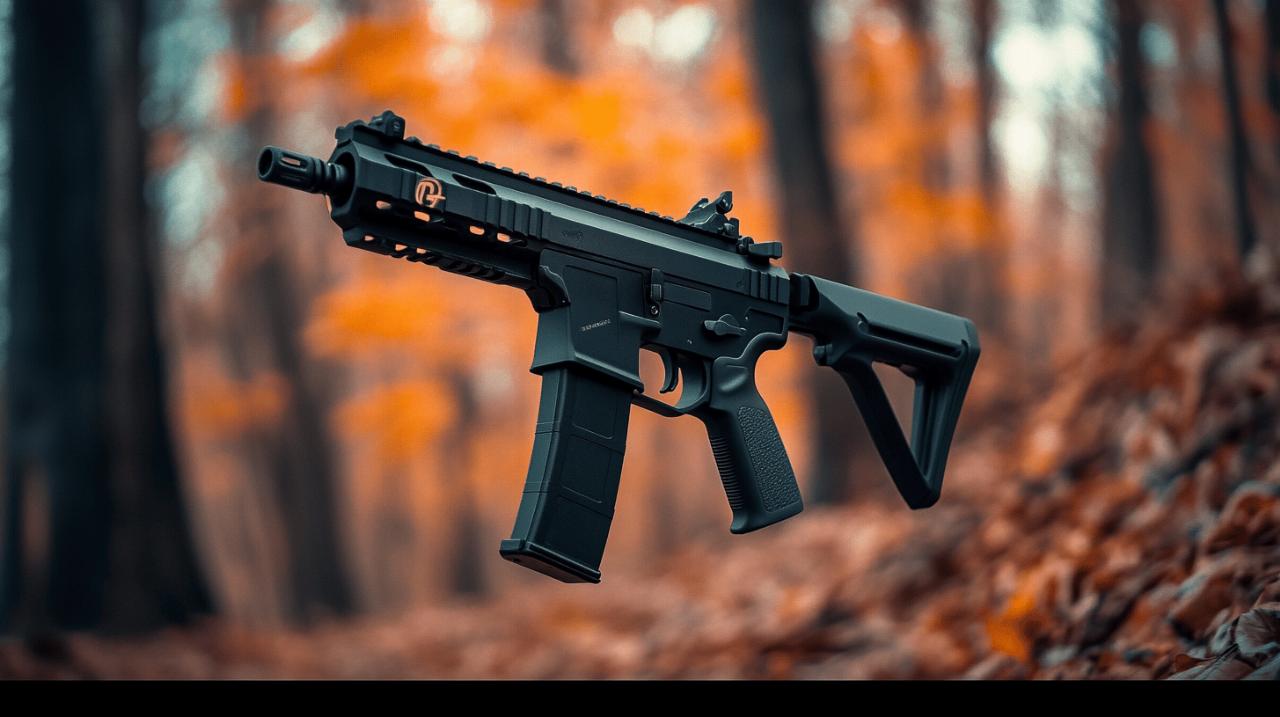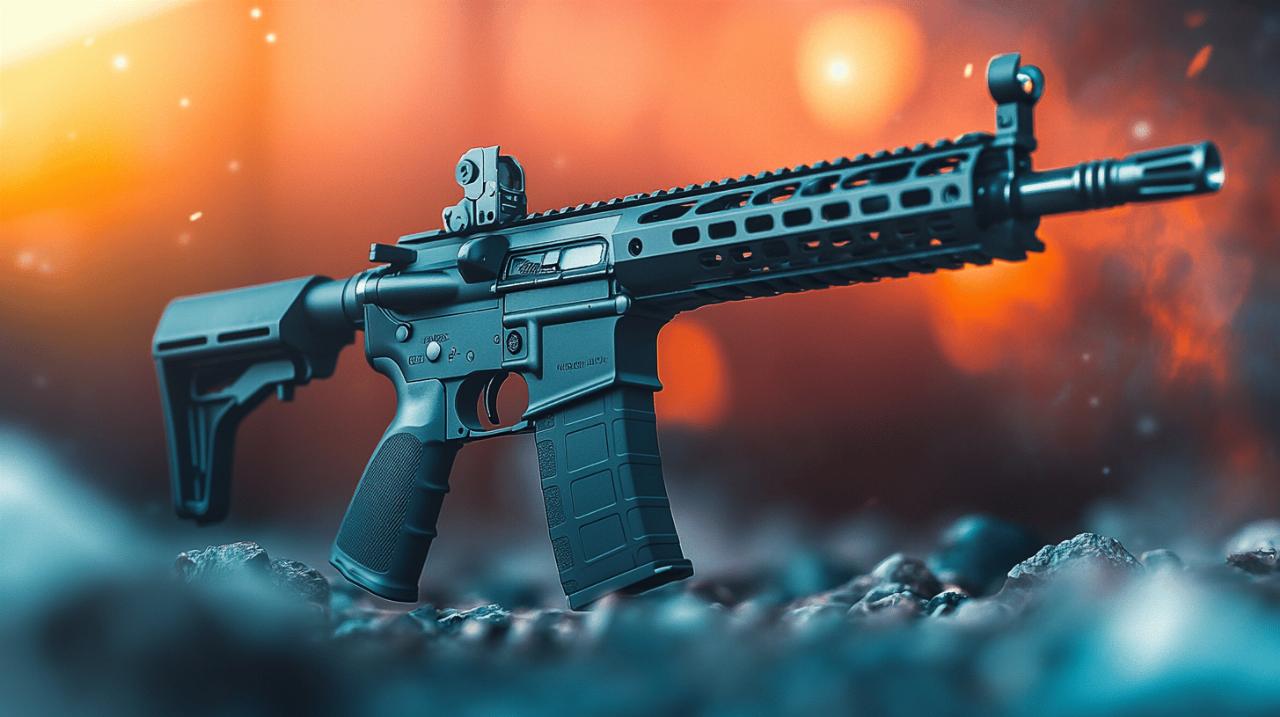Is a Pistolet A Bille 1 Joule Suitable for Pest Management? A Comprehensive Guide to UK Regulations and Best Practises
Air pistols have long occupied a somewhat ambiguous position within the UK's shooting community, particularly when discussions turn to practical applications beyond the shooting range. Whilst these compact firearms offer an accessible entry point into target shooting and recreational plinking, their suitability for pest management remains a contentious and often misunderstood topic. Understanding where one-joule BB pistols fit within the broader landscape of UK firearms legislation and pest control ethics is essential for anyone considering their use beyond simple recreational purposes.
Understanding uk firearms legislation: where one-joule bb pistols stand
Within the United Kingdom, firearms legislation establishes clear boundaries regarding the ownership and use of air weapons, including both rifles and pistols. The legal framework distinguishes between devices based on their muzzle energy, measured in foot-pounds, which directly correlates to the kinetic energy they generate upon discharge. For air pistols specifically, the law permits ownership without a Firearms Certificate provided the device does not exceed six foot-pounds of energy. This threshold roughly equates to eight point one three joules, placing one-joule BB pistols comfortably within the legal parameters for unrestricted ownership by adults over eighteen years of age.
Legal Classification and Ownership Requirements for Sub-Two Joule Air Weapons
One-joule BB pistols fall well below the six foot-pound threshold, making them among the least regulated air weapons available to UK consumers. This classification means that adults can purchase, own, and use these pistols without obtaining a Firearms Certificate, though certain conditions still apply. Individuals under eighteen require supervision from someone over twenty-one when handling any airgun, regardless of its power output. Furthermore, Scotland has implemented additional requirements through the Air Weapon Certificate system, which mandates certification even for low-powered air weapons that would otherwise be exempt elsewhere in the United Kingdom. The simplicity of acquiring these pistols often leads to misconceptions about their appropriate uses, with some believing that legal ownership automatically translates to suitability for tasks such as pest control.
The Wildlife and Countryside Act: Why BB Pistols Fall Short for Pest Control
The Wildlife and Countryside Act 1981 establishes the legal framework governing the control of certain species, permitting the dispatch of animals such as grey squirrels, rabbits, rats, and pigeons under specific circumstances. However, the Act implicitly requires that any method employed must ensure a humane outcome, meaning the animal must be dispatched swiftly and without unnecessary suffering. One-joule BB pistols simply lack the power to meet this ethical and legal standard. Attempting pest control with such underpowered devices risks causing injury rather than achieving a clean kill, potentially violating animal welfare legislation and inflicting needless distress upon the target animal. The law may permit ownership of these pistols, but it does not sanction their use for purposes they are fundamentally incapable of fulfilling humanely.
Power output and effectiveness: can one joule humanely despatch pests?
The question of whether one-joule BB pistols can humanely dispatch pests hinges entirely on understanding the relationship between kinetic energy and the physiological impact upon small animals. Even the smallest pests commonly encountered in UK gardens possess sufficient body mass and resilience that dispatching them requires a minimum threshold of energy delivered to vital areas. One joule represents a fraction of the energy necessary to achieve this outcome reliably, making these pistols wholly inadequate for pest management applications.
Kinetic energy thresholds for ethical pest management
Professional pest controllers and shooting organisations have long established minimum energy thresholds for humane pest control, typically recommending air rifles rather than pistols due to their superior power and accuracy. For rats, effective dispatch generally requires a headshot at extremely close range, ideally within ten yards, using a weapon capable of delivering substantially more energy than one joule. Squirrels demand similar precision and power, whilst pigeons require accurate chest or head shots at distances between ten and fifteen yards. These standards exist to ensure that each shot results in immediate incapacitation rather than wounding, which would constitute an offence under animal welfare legislation. One-joule BB pistols simply cannot generate the necessary force to meet these ethical benchmarks, making their use for pest control both ineffective and potentially cruel.
Comparing one-joule bb pistols to minimum recommended air rifle specifications
To appreciate the inadequacy of one-joule pistols for pest control, one must compare them to the minimum specifications recommended for legitimate pest management. Air rifles producing six to twelve foot-pounds are generally considered the baseline for small pest control, with higher-powered pre-charged pneumatic rifles offering even greater reliability at extended ranges. A twelve foot-pound air rifle delivers approximately sixteen point two seven joules of energy, more than sixteen times the output of a one-joule pistol. Even the lowest-powered spring air rifles suitable for occasional pest control produce at least six foot-pounds, still six times greater than one joule. This stark disparity in energy output translates directly to lethality and humane effectiveness, underscoring why one-joule pistols remain confined to recreational shooting rather than practical pest management.
Appropriate Applications for One-Joule BB Pistols in the UK
 Despite their unsuitability for pest control, one-joule BB pistols serve legitimate and enjoyable purposes within the shooting community. Understanding what these devices are designed to do helps set realistic expectations and prevents misuse that could harm animals or result in legal complications.
Despite their unsuitability for pest control, one-joule BB pistols serve legitimate and enjoyable purposes within the shooting community. Understanding what these devices are designed to do helps set realistic expectations and prevents misuse that could harm animals or result in legal complications.
Target practice and recreational plinking: what these pistols are designed for
One-joule BB pistols excel in controlled environments where their limited power becomes an advantage rather than a hindrance. Target shooting at paper or reactive metal targets provides an excellent opportunity to develop marksmanship fundamentals, including sight alignment, trigger control, and breathing techniques. Many of these pistols are meticulously crafted replicas of iconic firearms, featuring realistic operation and construction that appeals to collectors and enthusiasts alike. Gas blowback variants simulate the recoil and slide cycling of their real-steel counterparts, offering an immersive shooting experience without the expense or regulatory burdens associated with centrefire firearms. Spring-powered models provide reliable, simple operation ideal for introducing newcomers to shooting sports. These recreational applications allow shooters to enjoy their hobby safely whilst honing skills that may later translate to more powerful air rifles or even firearms.
Safety considerations when using bb guns on private property
Shooting any air weapon, regardless of power, requires adherence to fundamental safety principles and legal obligations. It remains entirely legal to discharge air guns within one's own garden provided that pellets or BBs do not leave the property boundaries and that due care is taken to prevent harm to people, animals, or property. Establishing a safe backstop capable of stopping projectiles is essential, as is ensuring that no line of fire extends beyond one's property boundary. Neighbours should be informed of shooting activities to avoid alarm, and consideration should be given to noise levels, particularly when using gas-powered pistols. Even low-powered BB pistols can cause injury if mishandled, making eye protection mandatory and reinforcing the importance of treating every air weapon with the same respect afforded to more powerful firearms. Trespassing whilst carrying an air weapon constitutes an offence, as does discharging any air weapon without the landowner's explicit permission when on property other than one's own.
Recommended alternatives for legitimate pest control purposes
For those genuinely seeking effective pest management solutions, several alternatives offer the power, accuracy, and reliability necessary to dispatch common UK garden pests humanely and legally.
Air Rifles and Their Suitability for Common UK Garden Pests
Air rifles represent the minimum standard for effective pest control, with models producing between six and twelve foot-pounds providing adequate power for rats, squirrels, rabbits, and pigeons when used by competent shooters. Pre-charged pneumatic air rifles offer exceptional accuracy and consistency, making them particularly well-suited for pest control applications where precise shot placement is paramount. CO2-powered rifles provide convenience for close-range work, whilst spring-powered models remain popular for their reliability and independence from external power sources. Calibre selection also plays a role, with point one seven seven typically favoured for its flatter trajectory and higher velocity, whilst point two two offers greater energy transfer at shorter ranges. Effective ranges for air rifles extend to forty-five or fifty yards for competent shooters using quality equipment, though pest control shots should generally be limited to distances where the shooter can guarantee accurate placement in vital areas. Regardless of the specific rifle chosen, the substantial increase in power compared to one-joule pistols makes humane pest control achievable when combined with proper technique and ethical restraint.
Professional pest management services: when to seek expert assistance
Not every pest problem requires a firearm-based solution, and many situations benefit from the expertise of professional pest controllers. The British Pest Control Association provides resources for locating qualified technicians who possess the training, equipment, and legal authority to manage pest issues comprehensively. Professional services prove particularly valuable when dealing with protected species, persistent infestations, or situations where the use of firearms would be impractical or unsafe. These experts employ a range of methods beyond shooting, including trapping, proofing, and the judicious use of rodenticides where appropriate. For individuals lacking the necessary shooting skills, suitable equipment, or legal access to land where pest control can be conducted safely, professional assistance ensures that pest problems are resolved humanely, effectively, and within the bounds of the law. Organisations such as the British Pest Control Association also offer training courses for those interested in developing their own pest management capabilities, providing pathways to recognised qualifications and ongoing professional development.
